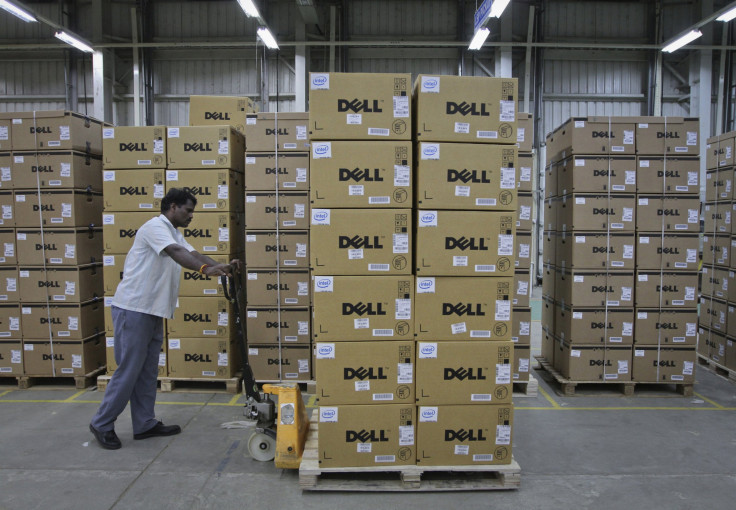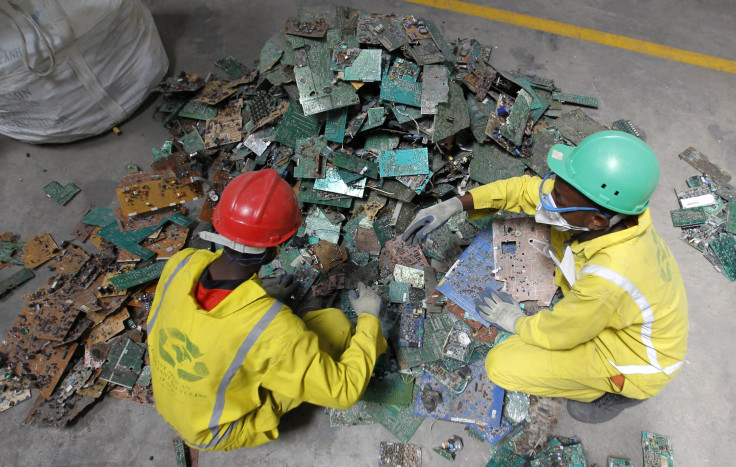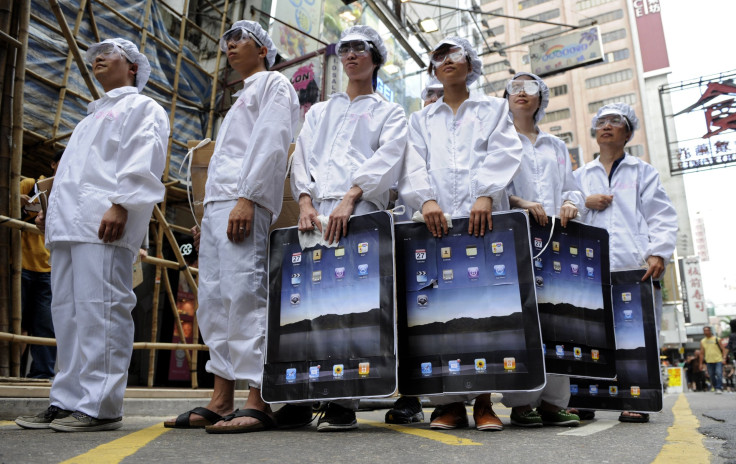Companies Fighting Climate Change Are Missing One Of The Biggest Culprits: Their Supply Chains

Take apart a Dell Inc. computer and you’ll find the work of dozens of companies. Memory chips, microprocessors and screens are made and assembled in China and India, shipped via truck and tanker and sold in stores, and eventually land in cubicles and homes worldwide. Each step in the supply chain carries its own load of greenhouse gas emissions, which together boost the Texas technology giant’s total carbon footprint.
To trim those emissions, Dell is working with more than 100 of its top manufacturing suppliers to cut fuel and electricity use, adopt renewable energy and track carbon output. The company says the effort is part of Dell’s broader mandate to slash inefficiencies in its supply chain and curb unnecessary costs.
“We encourage them to look at energy savings as a business advantage, and not just a nice thing to do to please an environmentally conscious customer,” Bruno Sarda, Dell’s director of corporate responsibility, said.
Dell is among a small group of multinational firms starting to scrutinize the environmental impacts from the manufacturing plants, storage facilities, transportation networks and sales forces that underpin their core businesses.
While many companies have jumped on the carbon-cutting bandwagon in recent years, the majority keep their focus inward, opting to upgrade offices with energy-efficient appliances or install rooftop solar panels at their headquarters. Fewer businesses are addressing the supply chain emissions, which can contribute up to four times more carbon pollution than the company’s direct operations.
“It’s a huge hidden risk,” said Paul Simpson, chief executive of London-based CDP, formerly the Carbon Disclosure Project. “Many multinational companies have more emissions in their supply chains than in their own operation.”
Global businesses are under increasing pressure to reduce their environmental footprints in the wake of the Paris climate change talks. Last month, nearly 200 nations forged a pact to reduce carbon emissions, a move that could make it harder and more expensive to use fossil fuels and waste energy as nations adopt stringent climate regulations. Beyond the rules, their brands are at risk. Watchdog groups are increasingly scrutinizing companies — including Amazon.com Inc. and Walmart Inc. — that rely heavily on coal and petroleum or fail to meet their highly publicized environmental goals.
Yet the suppliers themselves appear less ready to join the fray. In a CDP report released Tuesday, 75 multinational companies representing over $2 trillion in procurement spending asked nearly 8,000 supply chain companies to answer questions about their carbon emissions and plans to adapt to more extreme weather fueled by global warming. About 49 percent, or nearly 3,900 companies, failed to respond — a signal that those firms aren’t tackling climate issues, Simpson said.
“If a new piece of regulation comes in, those companies are most likely to be impacted or at risk. They’re not paying attention to their customers’ needs,” he said. “This is a significant blind spot in the multinational supply chain.”
Dell, which participated in the CDP survey, said nearly all the 120 suppliers it works with have responded to Dell’s own climate efforts. The technology company asks those parts-makers and assembly firms to measure and report their annual carbon dioxide emissions, a metric that’s discussed during Dell’s regular business reviews with each manufacturer.

Dell also helps suppliers identify techniques or technologies to reduce energy and water consumption. About 100 suppliers managed to save $40 million in energy costs in 2014 thanks to the effort, Sarda said. He said he didn’t have data on those companies’ total annual energy costs.
Sarda said Dell’s climate push hasn’t resulted in the company ending contracts with a supplier or opting against a new partnership. He described Dell’s approach as “much more carrot than stick” when it comes to curbing supply chain emissions. “We ask suppliers to do this, but then we help them do it,” Sarda said.
But at BT Group, the British telecommunications giant, questions around carbon emissions are a growing factor in the company’s approach to picking new suppliers.
“We’ve tried to bring that sustainability scope into our decision-making where we have choices between suppliers,” said Liz Cross, head of sustainability and governance in BT Group’s procurement division. “When you’re making a decision to buy some equipment that’s going to be in place for five to 10 years, for example, then you want to make sure that’s going to be as low-energy to operate as it can be.”
BT Group, which operates in 170 countries, counts more than 16,500 companies in its supply chain. Cross said the firm invites 200 of its largest equipment and services providers to disclose their carbon emissions data. Last year, 49 suppliers didn’t reply or declined to respond, although Cross said BT Group is boosting efforts to get more companies on board.
“When you’re talking about saving carbon emissions, you’re often talking about reducing the electricity use and fuel consumption,” she said. “There’s a clear commercial benefit; it goes straight to the bottom line.”
Despite the growing outreach, however, curbing supply chain emissions can feel like a game of whack-a-mole. Even suppliers have suppliers — for instance, the silicon producers and germanium miners that provide raw materials for the semiconductors that Dell buys. And wasteful energy use or high emissions are only a slice of the issues that multinationals have to manage in their supply chains. Human rights violations, toxic dumping in waterways and poor working conditions can all plague companies that outsource production to lower-wage contractors in far-flung parts of the world.

Dell in 2013 was ensnared in accusations of labor law violations related to its Chinese supplier Mingshuo Computers, which built computer motherboards for Dell. Mingshou allegedly forced its employees to work 74 hours a week for well below the Chinese minimum wage, the Danish nonprofit DanWatch found in its investigation. In response, Dell said it was working with suppliers on “corrective action plans” and said it maintained “high standards” for its partners.
Simpson, the CDP executive, said even with the multitude of issues confronting multinational firms, many businesses are starting to give more weight to tracking emissions and energy costs. Starting next year, CDP will begin ranking companies based on how well they work with their suppliers on climate-related risks.
“A whole range of companies are not engaging their suppliers at all, and therefore may be exposed to significant risk, versus those that are actively working with suppliers,” he said. “Companies that are not starting on this journey are leaving dollars and opportunities on the table.”
© Copyright IBTimes 2024. All rights reserved.





















